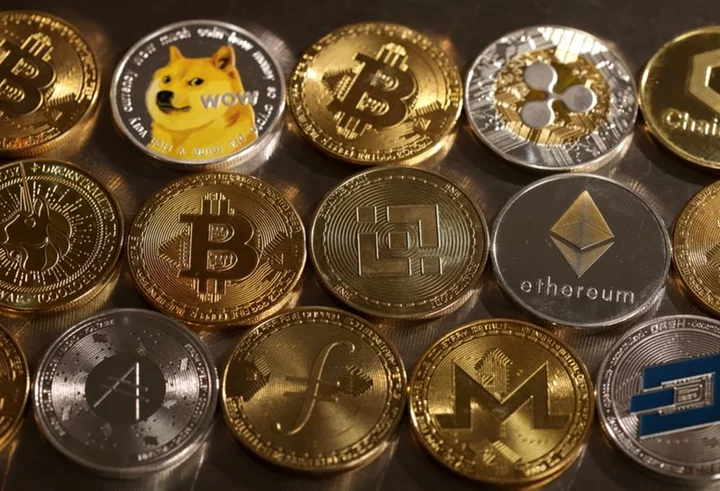
Spanish regulator opens first cryptoasset advertising case
MADRID Spain's stock market supervisor said on Wednesday it had opened its first case relating to a possible
2023-11-08 20:23
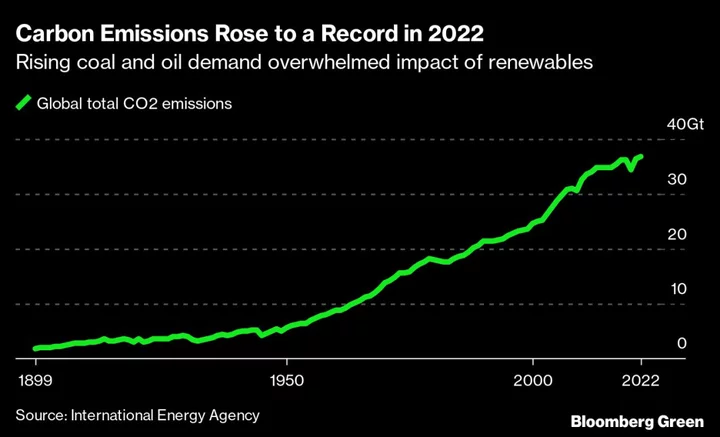
Why Those Bank Emissions Numbers Are So Rosy
On the surface, Deutsche Bank AG, Citigroup Inc. and Mizuho Financial Group Inc. all appear to be delivering
2023-11-08 19:58

Political ads on Instagram and Facebook can use deepfake technology, Meta says – but they must say so
Ads on Instagram and Facebook can use artificial intelligence technology to create photos, videos and audio of events that don’t actually exist, Meta has said. But those advertisers must make clear that they are not actually real if they are advertising on political or social issues, Meta said. When they do so, Meta will add a small note on the ad that gives information about the fact that it has been created with artificial intelligence. Meta said that it was introducing the new policy “to help people understand when a social issue, election, or political advertisement on Facebook or Instagram has been digitally created or altered, including through the use of AI”. It will go into effect in the new year, across the world, it said. The new policy will require advertisers to make clear if their political ads have an image, video or audio that looks real but was digital created or altered so that it looks like someone is saying something they didn’t, shows a person or event that is not actually real, or poses as a depiction of a real event but is actually fake. If the content is digitally created or altered by in ways that “are inconsequential or immaterial to the claim, assertion, or issue raised in the ad”, Meta said. It gave examples such as using technology to adjust the size or sharpen their image, but noted that those could still be problematic if they change the claim in the ad. But it also said that those fake videos, images and audio will still be allowed to be posted on the site. Instead, Meta will “add information on the ad when an advertiser discloses in the advertising flow that the content is digitally created or altered”, it said, and that same information will appear in Meta’s Ad Library. It said that it would give further information about that process later. It did not say how advertisers will flag such ads, what will be shown to users when they are flagged, and how those who do not flag them will be punished. Meta did say that it would remove any ads that violates its policies, when they are created by artificial intellgience or real people. If its fact checkers decide that a piece of content has been “altered”, then it will stop it from being run as an ad, the company said. “In the New Year, advertisers who run ads about social issues, elections & politics with Meta will have to disclose if image or sound has been created or altered digitally, including with AI, to show real people doing or saying things they haven’t done or said,” said Nick Clegg, Meta’s president for global affairs in a series of tweets that announced the new policy. “This builds on Meta’s industry leading transparency measures for political ads. These advertisers are required to complete an authorisation process and include a ‘Paid for by’ disclaimer on their ads, which are then stored in our public Ad Library for 7 years.” Read More The rise of the AI friend – but what happens when ‘bots’ turn into ‘bad’ mates? Instagram working to let people make AI ‘friends’ to talk to Meta launches paid-for version of Instagram and Facebook
2023-11-08 19:57
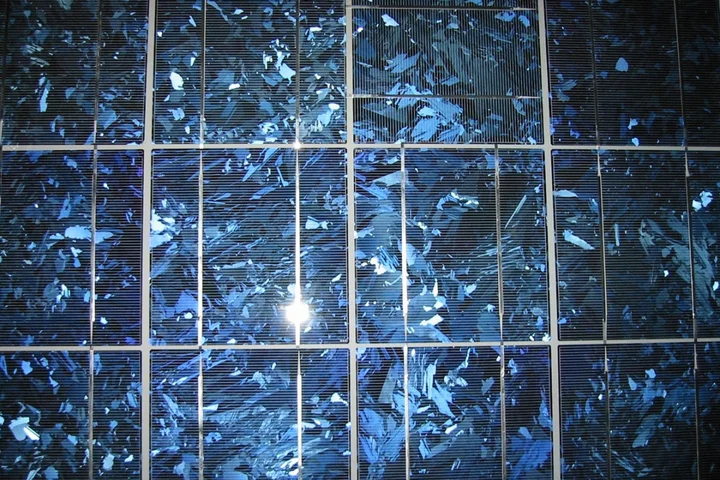
Solar panel world record smashed with ‘miracle material’
Researchers have made a breakthrough with a so-called miracle material to break the efficiency record for solar panel electricity generation. A team from the Chinese solar technology firm Longi set a new world record of 33.9 per cent for a silicon-perovskite tandem solar cell, breaking the previous record set in May this year by King Abdullah University of Science & Technology (KAUST) in Saudi Arabia. The new efficiency record also broke the theoretical limit of 33.7 per cent for the first time of standard single junction cells, which are found in commercial solar panels. “This provides meaningful empirical data to demonstrate the advantage of crystalline silicon-perovskite tandem solar cells over crystalline silicon single junction solar cells in terms of efficiency,” the company noted in a statement. “The emergence of crystalline silicon-perovskite tandem technology has opened up a new track for the development of next-generation high-efficiency solar cell technology. This means that the same area, absorbing the same light, can emit more electricity.” The theoretical efficiency limit of silicon-perovskite tandem solar cells is 43 per cent, however this level is unlikely to ever be realised on a commercial scale. The first production of ultra-efficient perovskite solar panels could begin in China, with researchers from Nanjing University saying earlier this year that a design breakthrough has made mass production possible. According to the researchers, the next-generation panels will be 50 per cent cheaper and 50 per cent more efficient than traditional silicon cells, however the efficiency rates will still be a long way off the levels achieved in the lab. UK startup Oxford PV, which is a spin-out from the University of Oxford, is already in the process of commercialising the technology, with hopes of beginning full-scale production at a German facility later this year. “Current silicon solar panels have reached their physical limits. We’ve got a way to transform the efficiency of these solar cells with perovskite,” Chris Case, Oxford PV’s chief technology officer, told The Independent in August. “The biggest challenge by far is durability and reliability. We already have great efficiency – much greater than current silicon cells – so most of our research and development is spent enhancing reliability, not efficiency.” Perovskite has been hailed as a “miracle material” for its potential to revolutionise everything from high-speed telecommunications to renewable energy technologies. Its potential for solar panels is not limited to the efficiency gains compared to traditional silicon cells, but also new ways of using them. Recent breakthroughs include self-healing solar panels that can maintain their efficiency for tens to hundreds of years, as well as double-sided solar panels capable of generating electricity from the Sun’s energy on both sides. The material could also be used in applications ranging from building-integrated solar panels to space-based electricity generation. Read More How tech could turn our homes into renewable energy power stations Hundreds of years after it was discovered, one material is about to change the world Millions could abandon electrical grid with new solar panel advance Millions of Australians left without mobile and internet network after Optus outage Guidance urges parents not to buy smartphones for primary school children
2023-11-08 19:23

GM's Cruise to recall 950 driverless cars after accident involving pedestrian
By David Shepardson Cruise is recalling 950 driverless cars from the roads across the United States and may
2023-11-08 17:48

Nintendo confirms The Legend of Zelda is being turned into a movie
'The Legend of Zelda' is being adapted into a live-action movie, producers have confirmed on X.
2023-11-08 16:23

Fortinet, rivals fall on concerns around cybersecurity spending
By Samrhitha A (Reuters) -Fortinet sank nearly 18% and sparked a selloff in cybersecurity stocks with a dismal forecast that
2023-11-08 13:48

Hot October Makes 2023 ‘Virtually Certain’ to Be Warmest Year Ever
This October was the warmest on record and 2023 is “virtually certain” to be the hottest year ever
2023-11-08 12:22

'Mario Wonder' latest mushroom power-up for Nintendo Switch
By Sam Nussey TOKYO Nintendo made a pitch for the ongoing match fitness of its aging Switch console
2023-11-08 11:21
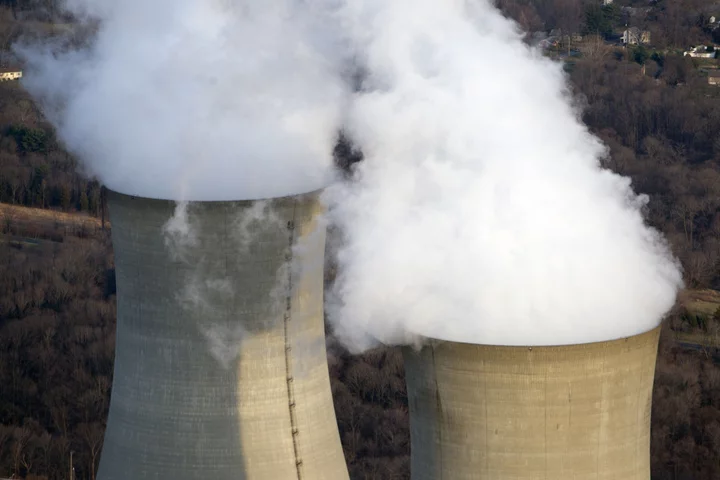
US Gets First Supply of Advanced Nuke Fuel for New Reactors
The US Energy Department has received the first commercial shipment of advanced nuclear fuel, which will be needed
2023-11-08 10:22

LNG Demand to Keep Rising on Asia’s Energy Growth, Woodside Says
Demand for oil and natural gas will stay resilient for decades, driven by population growth and industrialization in
2023-11-08 09:20
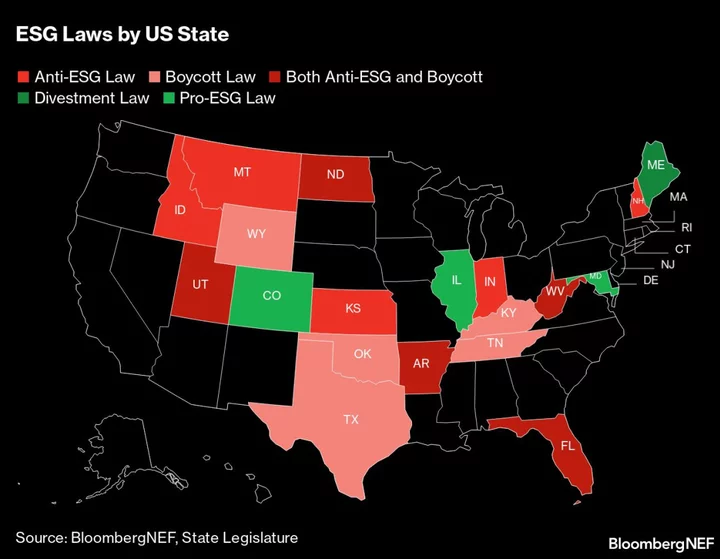
‘ESG’ Is Too Important to Ax, Investors Say
As Republican legislators in the US try to wipe ESG off the map, most global investors and executives
2023-11-08 09:16
